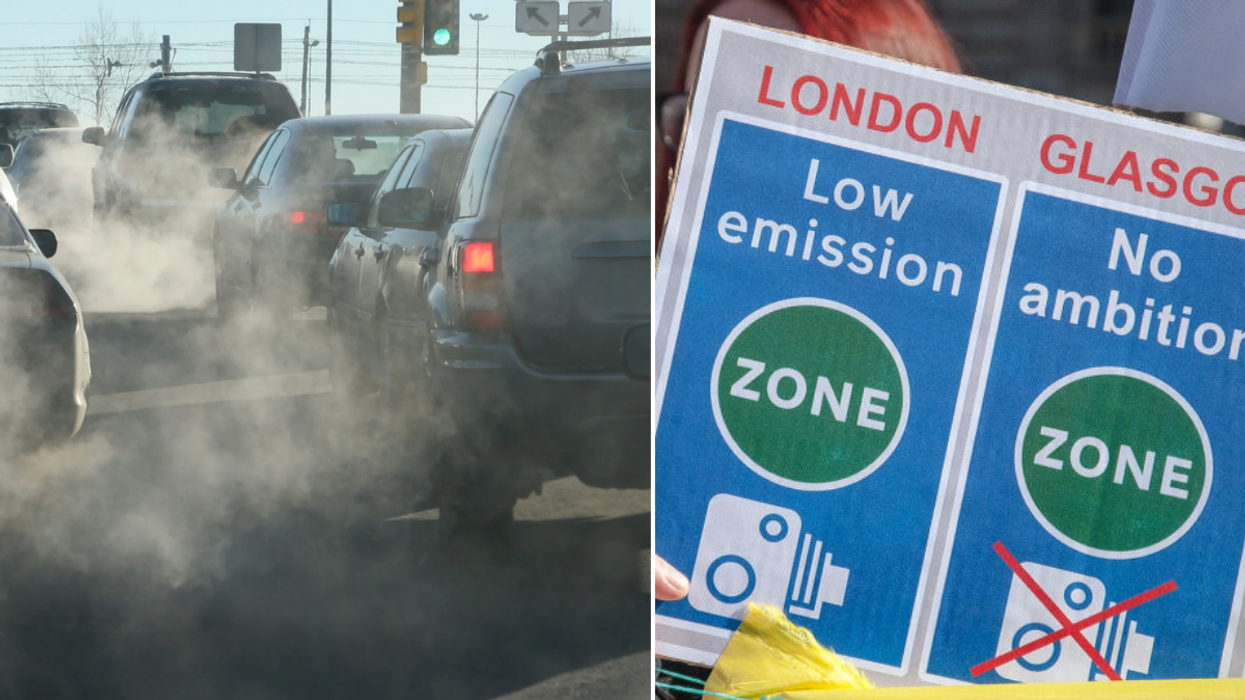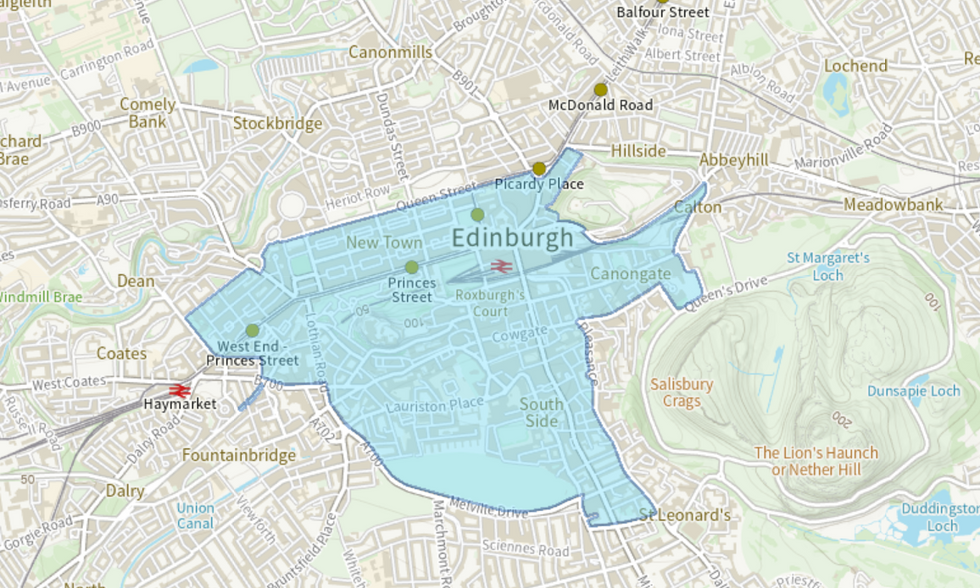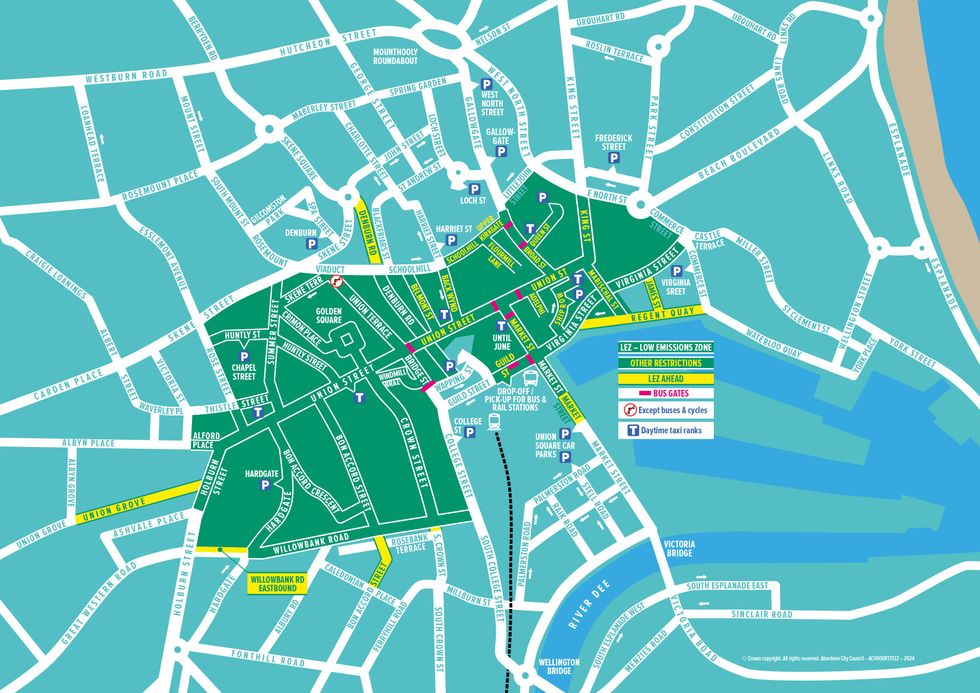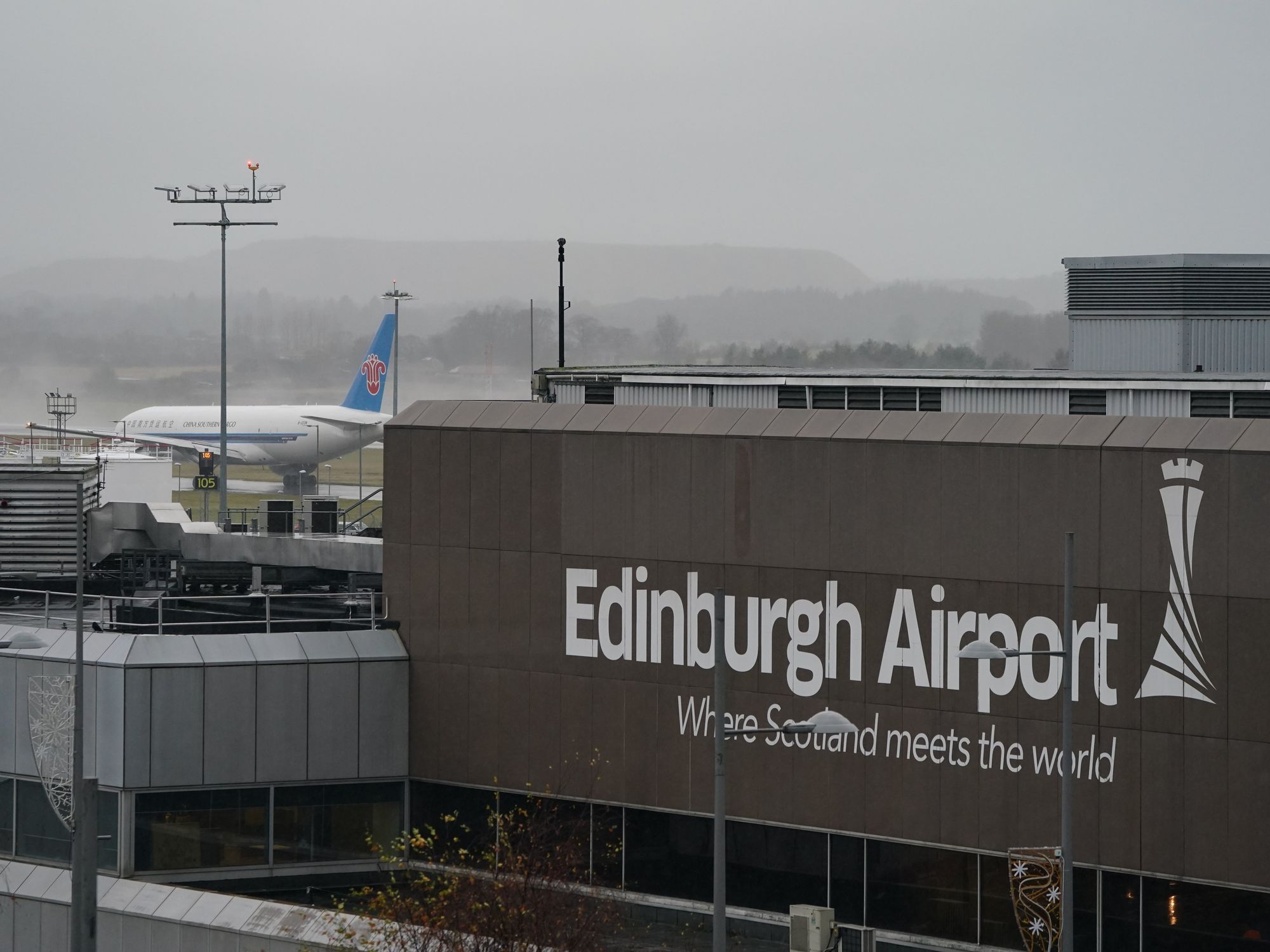Drivers overcharged with fines in Low Emission Zones will see funds given back to local authorities

Four LEZ schemes began enforcing fines across Scotland in June
|GETTY

Councils can channel surplus LEZ funds back into the scheme
Don't Miss
Most Read
Latest
Drivers have been warned that any surplus money captured by Low Emission Zone fines will not go back into their pockets but straight to the Government.
This means that if drivers were overcharged for LEZ fines, instead of it being reimbursed, the extra funds will be channelled back into Government coffers and local authorities.
The enforcement of Low Emission Zones across Scotland began in June with Aberdeen, Dundee and Edinburgh able to start charging non-compliant vehicles.
Glasgow, however, has enforced the LEZ for the past year, but according to official council reports any surplus generated from the scheme would go back to the local authority.
Do you have a story you'd like to share? Get in touch by emailing motoring@gbnews.uk
 The Edinburgh LEZ boundary map | EDINBURGH CITY COUNCIL
The Edinburgh LEZ boundary map | EDINBURGH CITY COUNCILBetween June 1, 2023, and March 31, 2024, a total of 38,294 penalties were issued for non-compliant vehicles entering the Glasgow LEZ. Drivers were charged £60, although this can be reduced by half if paid early.
In the annual reports, the council detailed: “Legislation allows for local authorities to use residual revenue from an LEZ to facilitate the achievement of the scheme’s mandatory and discretionary objectives.
“Therefore, the remaining available revenue will be used for projects which contribute towards meeting the relevant air quality objectives or contribute towards the emissions reduction targets."
However, the report did note that there was no surplus generated for the financial year 2023/24 as the “quantum of available funding was yet to be determined”.
As a result of Glasgow’s one-year progress, other councils are now worried about the impact a surplus from the LEZ will cause.
Council Leader Cammy Day told GB News: "For over two years we ran an extensive information campaign alongside our partners to make sure everyone is aware of the requirements of the LEZ and can plan accordingly.
“Any revenue that we generate from the LEZ will be reinvested into the running of the zone, with any surplus funds supporting the LEZ’s wider goals.
"These ambitious goals include achieving net zero, accommodating sustainable growth, cutting congestion, and improving air quality, amongst other commitments to create a safer and more people-friendly city."
To be LEZ compliant petrol cars and vans must have Euro 4 emissions, while Euro 6 is in place for diesel cars and vans and Euro VI for buses, coaches and HGVs.
Motorcycles and mopeds are unaffected by LEZ schemes in Scotland as are Blue Badge holders and emergency service and military vehicles. Penalty charges however are capped at £480 for cars and light goods vehicles, and £960 for buses and HGV.
Edinburgh Council documents also state: “Emerging evidence from Glasgow indicates that surplus income may be generated by Scotland’s LEZ model, against operational and maintenance costs, but there is currently insufficient data to confirm if this will be replicated in Edinburgh.”
The council warned that it must have a system in place to deal with any potential surplus as without applying this approach, the council risks not complying with legislation.
LATEST DEVELOPMENTS:
 Aberdeen LEZ boundary map | ABERDEEN CITY COUNCIL
Aberdeen LEZ boundary map | ABERDEEN CITY COUNCILIt added that the surplus could reduce the wider potential positive impacts of LEZ and potentially result in having to return income received to the Scottish Government.
Aberdeen City Council explained that any surplus income can be used for measures to further improve air quality within the LEZ.
During the first 11 days of the scheme, the council brought in £117,360 in fines issued to drivers with non-compliant vehicles.
But it added that any spare cash created from the scheme that is not used by the Council must be paid to Scottish Ministers to offset previous LEZ grant funding. It also noted that it anticipates surplus funds to be low but present as a result of the LEZ.
“Nevertheless, should the situation arise where surplus PCN income exists, it is prudent for the council to have a policy in place for assigning this, to ensure it can be used appropriately and in accordance with legislation,” the document described.










